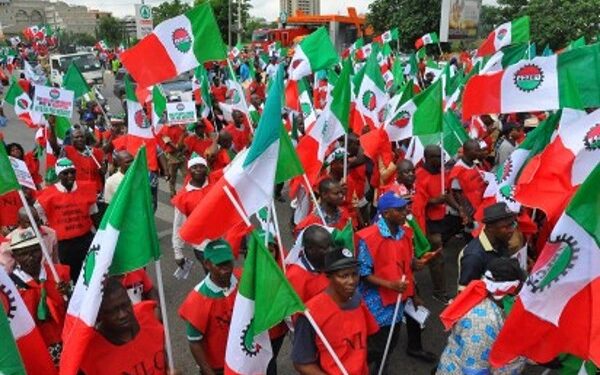Nigeria News
Labour Suspends Planned Protest Over Police Presence At Rivers LGAs

The Nigeria Labour Congress (NLC) and the Trade Union Congress (TUC) in Rivers State have called off a scheduled protest initially aimed at addressing the ongoing police blockade at local government area secretariats.
The decision to suspend the protest came after reports surfaced about potential violence being incited under the guise of union activities.
During a joint press briefing held on Sunday in Port Harcourt, NLC Chairman, Alex Agwanwor, called on the police to arrest anyone attempting to protest under the labour unions’ name on Monday, thereby maintaining public order and ensuring the safety of all parties involved.
Agwanwor also appealed to members of the Nigeria Union of Local Government Employees (NULGE), who had originally called for the protest, to stand down and await further directives from the central labour authorities.
Addressing allegations of partisanship, both Agwanwor and his TUC counterpart, Ikechukwu Onyefuru, refuted claims made by former Local Government Chairmen, emphasizing the non-partisan stance of the state labour leaders.
The planned protest was initially spurred by the police occupation of local government secretariats, which labour leaders argue unlawfully restricts workers’ access to their workplaces.
On Friday, the labour leaders had formally requested the police to vacate the council premises, citing the constitution and the ongoing political disputes within the state, including calls by the All Progressives Congress (APC) for a state of emergency.
While acknowledging the police’s role in maintaining peace, Agwanwor argued that barring access to workplaces is a violation of workers’ rights.
He urged the Inspector General of Police, Kayode Egbetokun, to direct the Rivers State Commissioner of Police to allow workers to return to their offices to perform their duties.
The labour groups warned that should their requests continue to be ignored, they are prepared to mobilize their members to assert their right to access their places of employment.












